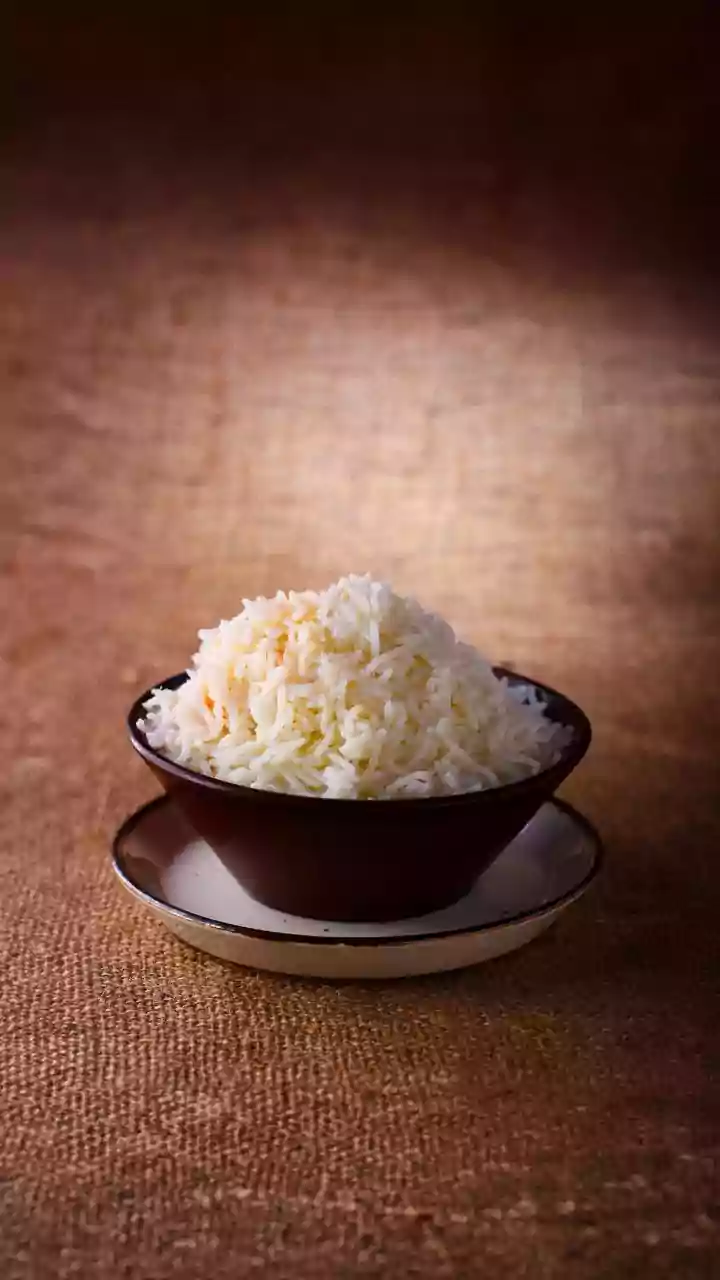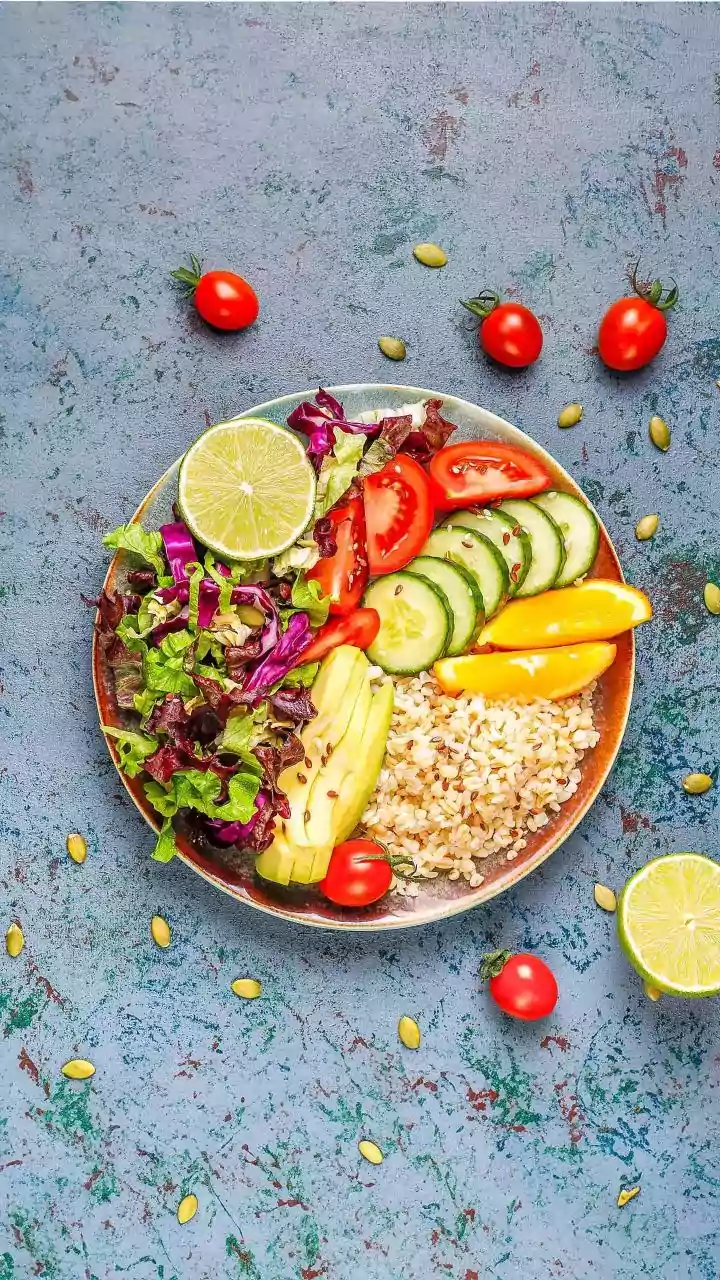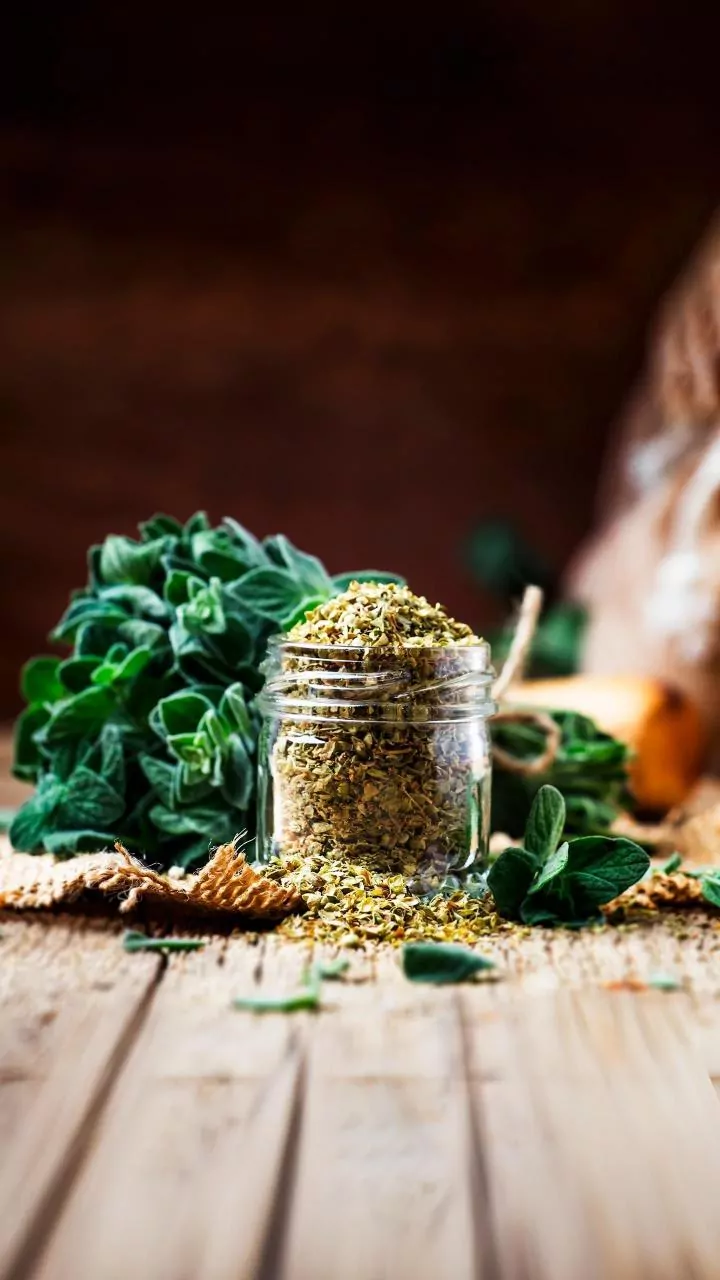Fuel Your Body Right! Discover 10 Powerhouse Foods to Energize You. Improve your health with these nutrient-packed choices. Read more!
Namaste, everyone! Are you feeling a bit 'thakela' lately? (That's
tired in Hindi!) Maybe your diet needs a little boost. We all know eating healthy is important, but sometimes it's hard to figure out where to start. Don't worry, we've got you covered.
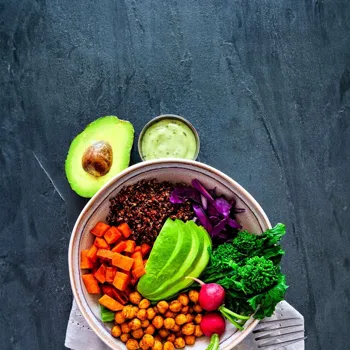
Think of your body as a temple, and these foods are the best offerings you can give it. Let's explore ten nutrient-packed vegetarian foods that will energize you and keep you feeling tip-top. Get ready to make some smart choices at your local sabzi mandi (vegetable market)!
Spinach: The Green Machine
Spinach, or 'palak' as we call it, is a real superfood! This leafy green is brimming with vitamins A and C, which are great for your immunity and skin. It's also a fantastic source of iron, which is essential for carrying oxygen around your body. Feeling tired or weak?
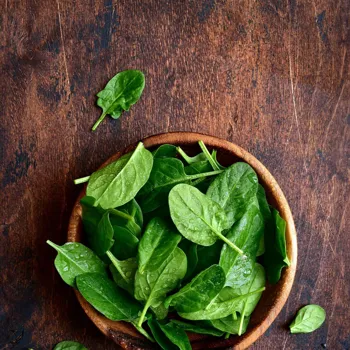
Iron deficiency could be the culprit. Spinach also has folate, which is important for cell growth. Throw some spinach into your dal, make palak paneer, or simply add it to your salads. It's super versatile and easy to incorporate into your daily diet. Remember Popeye? He knew what he was doing!
The iron content is very high and can give a boost to your daily life. It is commonly available and can be added to the grocery list without thinking twice. Spinach is a low-calorie option that is high in vitamins and nutrients and can improve your overall well-being.
Lentils: Protein Powerhouse
For vegetarians, lentils or 'dal' are a must-have. They are packed with protein, which is crucial for building and repairing tissues. There are so many varieties of lentils—masoor dal, toor dal, moong dal, urad dal—each with its own unique flavour and texture.
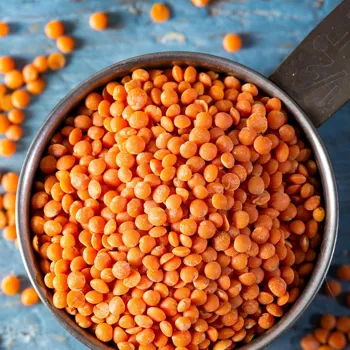
Lentils are also an excellent source of fibre, which aids digestion and keeps you feeling full for longer. This can help with weight management too. Plus, they are loaded with iron, folate, and potassium.
Making dal is a staple in most Indian households, and it's a cheap and easy way to get your daily dose of nutrients. They can also be very filling with less calories that can help in weight loss. They make a great staple in terms of food along with rice and can be added to many recipes.
With so many different types of dals it never gets boring as each dal can be cooked in a different way.
Yogurt: Gut-Friendly Goodness
Yogurt, or 'dahi', is a probiotic powerhouse. Probiotics are beneficial bacteria that live in your gut and help with digestion and immunity. Eating yogurt regularly can improve your gut health, reduce bloating, and boost your immunity.
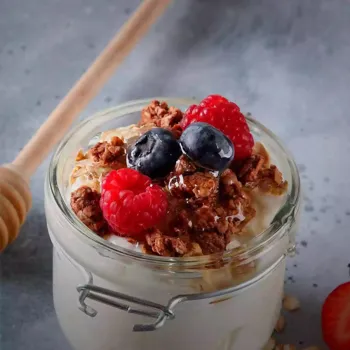
It's also a good source of calcium, which is important for strong bones and teeth. Choose plain, unsweetened yogurt to avoid added sugars. You can add fruits, nuts, or a drizzle of honey for a healthy and delicious snack. Lassi is a great way to add yogurt to your daily life.
It is also a healthier alternative compared to milk and can be consumed daily as a source of probiotics. Dahi/Yogurt is also a great add-on to your diet if you have an upset stomach as it can help soothe the digestive system. The benefits of yogurt are endless.
Almonds: Brain Booster
Almonds are small but mighty. These nuts are loaded with healthy fats, vitamin E, and magnesium. They are great for your heart health, brain function, and skin. Vitamin E is an antioxidant that protects your cells from damage. Magnesium helps regulate blood sugar levels and blood pressure.
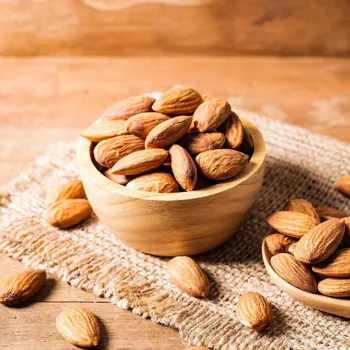
Eating a handful of almonds every day can keep you feeling sharp and energized. Soaking almonds overnight can make them easier to digest and increase their nutrient absorption. You can also add them to your breakfast cereal or use them in desserts.
Some people are allergic to almonds, so it's important to note if there's an allergy and take necessary precautions. The price point for almonds is slightly higher than other nuts but it's worth adding it to your diet. They are also a great snack alternative when binging or craving for something.
Sweet Potatoes: Vitamin A Superstar
Sweet potatoes, or 'shakarkandi', are a delicious and nutritious root vegetable. They are an excellent source of vitamin A, which is crucial for vision, immunity, and skin health. They are also high in fibre, which aids in digestion and helps regulate blood sugar levels.
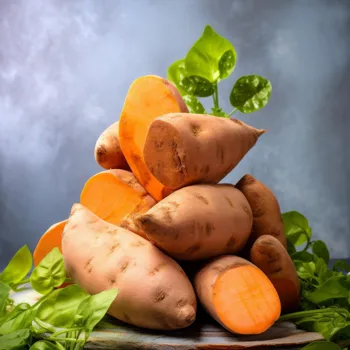
Sweet potatoes are naturally sweet, so they can satisfy your sweet cravings without adding refined sugar to your diet. You can bake them, roast them, or even use them in desserts like halwa. They can add a great flavour if added to a simple sabzi as well.
People love to boil them and add a little bit of spices as a snack. They are very filling and a better source of vitamins and minerals compared to potatoes. Instead of indulging in fried food, consider a baked sweet potato as a way to satisfy cravings and to stay healthy.
Broccoli: Cancer-Fighting Champion
Broccoli is a cruciferous vegetable with a high nutrient profile. It’s packed with vitamins C, K, and folate, and is also a good source of fibre and antioxidants. Antioxidants help protect your cells from damage caused by free radicals, which can contribute to chronic diseases.
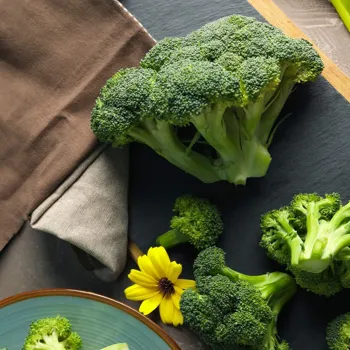
Adding broccoli to your diet can help reduce your risk of cancer, heart disease, and other health problems. You can steam it, roast it, or stir-fry it. It’s also delicious in soups and salads.
If you or someone you know hates broccoli, try adding cheese while cooking or sprinkling cheese powder when it is served. It's a great way to improve the flavour and get reluctant eaters to try new foods. Broccoli is available and in abundance during the colder months.
It is also very versatile in terms of the various dishes it can be added to.
Chia Seeds: Tiny but Terrific
Chia seeds might be small, but they are mighty when it comes to nutrition. These tiny seeds are packed with fibre, omega-3 fatty acids, and protein. They are great for digestion, heart health, and brain function. Chia seeds are also a good source of calcium, iron, and magnesium.
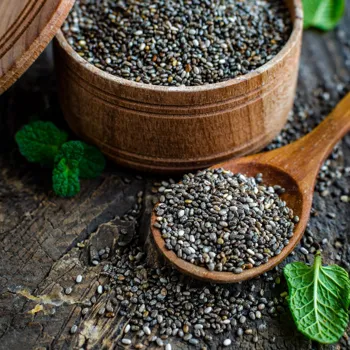
They can absorb lots of liquid, which makes them a great addition to smoothies and puddings. Adding chia seeds to your diet can help you feel full longer, which can aid in weight management. Just a tablespoon or two a day can make a big difference.
Chia seed puddings are a common dessert and a healthier alternative for sweet cravings. Chia seeds can also be added to Indian drinks like nimbu pani or chaas. It doesn't taste like anything which works if you don't want the flavour to be changed.
Turmeric: The Golden Spice
Turmeric, or 'haldi', is a potent anti-inflammatory and antioxidant spice. It contains curcumin, a compound with powerful health benefits. Adding turmeric to your diet can help reduce inflammation, relieve pain, and boost your immunity.
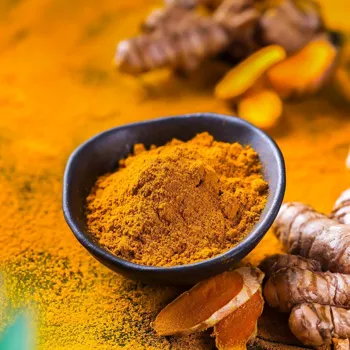
Turmeric is commonly used in Indian cooking and is a key ingredient in many curries and dals. You can also add it to your tea or milk for a warming and healthy beverage. Combine it with black pepper to enhance its absorption. Haldi doodh is a great alternative to add turmeric to your daily diet.
Turmeric has been used for centuries as a traditional medicine; the benefits are endless. It can even be applied to the skin to heal wounds and reduce inflammation. Turmeric is a must have in every Indian household.
Beets: The Blood Booster
Beets, or 'chukandar,' are vibrant root vegetables known for their ability to boost blood health. They are rich in nitrates, which the body converts into nitric oxide. Nitric oxide helps relax blood vessels, improving blood flow and lowering blood pressure.
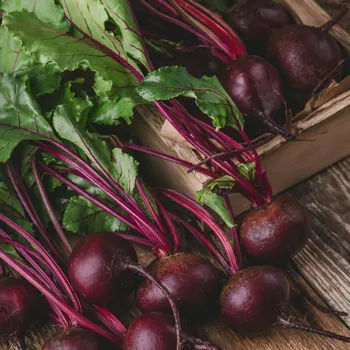
Beets are also a good source of folate, manganese, and potassium. Include them in your salads, juices, or even soups to enhance your cardiovascular health and get a natural energy boost. Beet juice is also a common drink for those who want an added boost.
They are also extremely filing which is also beneficial when trying to lose weight. While they are an acquired taste, the benefits are worth including in your daily diet. They even boast of vibrant colours that elevate any dish if added.
Oranges: Vitamin C Champion
Oranges, or 'santra', are a classic source of vitamin C. This vitamin is essential for immune function, collagen production, and wound healing. Eating oranges can help protect you from colds and flu, keep your skin looking healthy, and speed up the healing process after injuries.
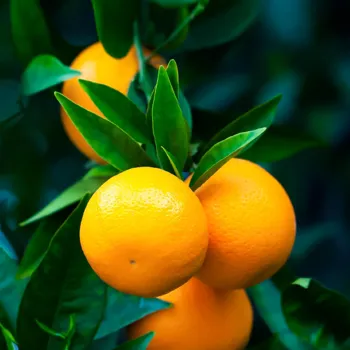
Oranges are also a good source of antioxidants and fibre. Enjoy them as a snack, squeeze them into juice, or add them to your smoothies. While there are many citrus fruits, oranges still prevail as the best source of Vitamin C.
Eating them raw is an ideal way to get the best vitamins and minerals from the fruit. It is also commonly added to juices when juicing vegetables to get rid of the unpleasant taste. They are also available year around at a reasonable price.
So, there you have it—ten nutrient-dense foods to include in your grocery list. Making small changes to your diet can have a big impact on your health and well-being. Remember, eating healthy is a journey, not a destination.
Start with these suggestions, listen to your body, and enjoy the process of nourishing yourself with wholesome, delicious foods. Happy shopping, and stay healthy!

